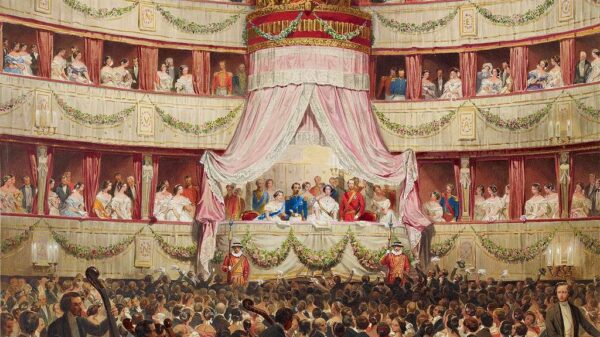Roar writer Arjan Arenas on Joy Division’s “Love Will Tear Us Apart” and the story behind it.
Content Warning: This article contains discussion of mental health, depression and suicide.
“When routine bites hard / And ambitions are low / And resentment rides high / But emotions won’t grow…”
These are the arresting opening lyrics of Joy Division’s defining single “Love Will Tear Us Apart“, which was released 40 years ago, in June 1980. In and of itself, it’s a melancholy listen which quickly emerges from behind a cheery façade. The ostensibly upbeat tempo, dominated by Stephen Morris’s rapid drumbeats, and the bright strumming of Bernard Sumner’s guitar and Peter Hook’s bass, quickly comes into contrast with the eerie synths which set the song’s overall despondent atmosphere.
However, the song (which went platinum and topped the UK Indie Charts) has since acquired a grim significance, as by the time most people heard it on its initial release, its writer and vocalist, Ian Curtis, was dead. His suicide at the age of just 23 strongly contributed to the band he fronted attaining a morbid cult status, and the personal turmoil which inspired him to write “Love Will Tear Us Apart” resonates through the song to this day, solidifying its place in music history.
“Love Will Tear Us Apart,” like most of Joy Division’s back catalogue, deals with dark themes, but at the beginning of 1980 the Manchester post-punk group’s future looked bright. Signed to the powerhouse indie label Factory Records, their 1979 debut album, Unknown Pleasures, was an immediate success and is now a classic. Off the back of this, they would record their equally acclaimed second (and as it turned out, final) album, Closer, which they would release a month after “Love Will Tear Us Apart.”
Behind the scenes, however, Curtis was suffering. His marriage came under immense strain after his wife Deborah learned that he was having an affair with Belgian music journalist Annik Honoré. He felt intensely guilty about his infidelity to the mother of his infant daughter, but at the same time believed he genuinely needed to be with Honoré.
Amidst grappling with depression, he had been struggling with epilepsy for the past two years, and was suffering increasingly violent seizures during gigs, which often manifested themselves in the jerking movements of his dancing onstage. The final straw came in May 1980, when Joy Division prepared to go on a North American tour that would have taken their career to new heights. Curtis, who had a fear of flying, was terrified of the prospect. In the early hours of 18th May, alone at home, he hanged himself.
For Curtis’s bandmates, who subsequently formed the synthpop group New Order, there was no possibility of Joy Division continuing without its front man. As shocked and devastated as they undoubtedly were, Sumner and Hook have since admitted that the signs all was not well had been there for a while, and Curtis had poured his anguish into his later songs, not least “Love Will Tear Us Apart.”
When the song was recorded in March 1980, U2 popped into the studio, and Bono summed up its essence and Curtis’s mindset when he wrote it. He said that when he spoke to Curtis, “it was like [there were] two people inside of him”: the quiet, polite individual outside the recording booth, and his furiously emotional counterpart inside it. These distinct personalities seemed, to Bono, “separate… torn apart.”
Although Factory Records manager Tony Wilson vehemently denied that the publicity surrounding Curtis’s suicide propelled the chart success of “Love Will Tear Us Apart,” it was a definite factor in the mythological status that song now holds. Although Deborah Curtis has voiced resentment over being the song’s subject without Ian telling her the full extent of his feelings, she had its title inscribed as the epitaph on her husband’s gravestone. 40 years on, it remains a searing testament to the talents of a singer-songwriter who had so much more to give.


















